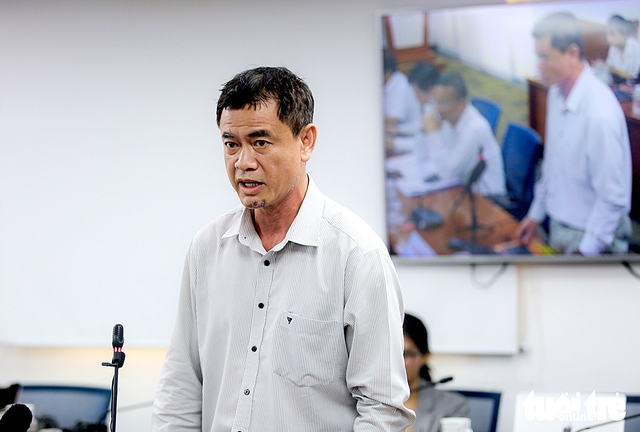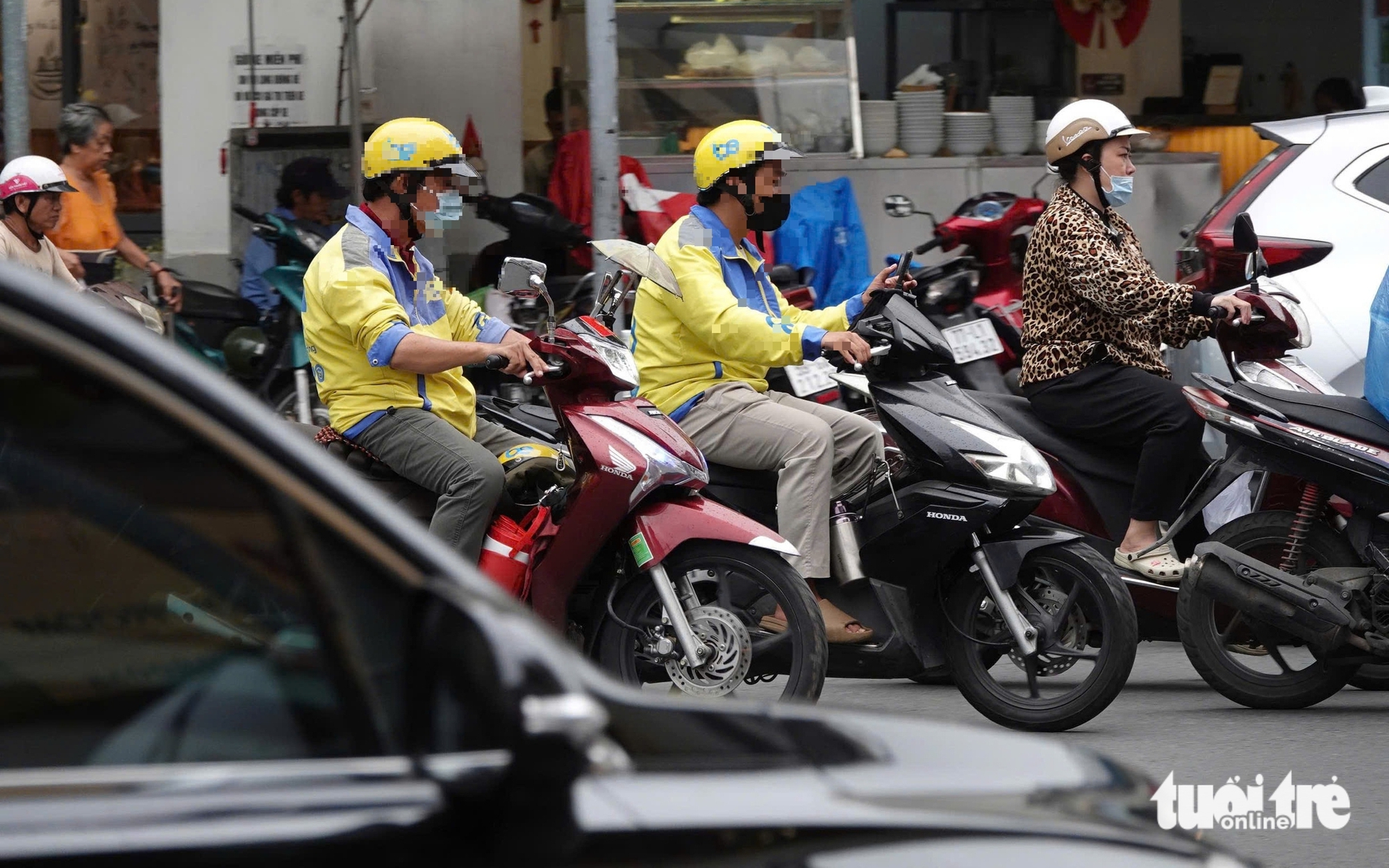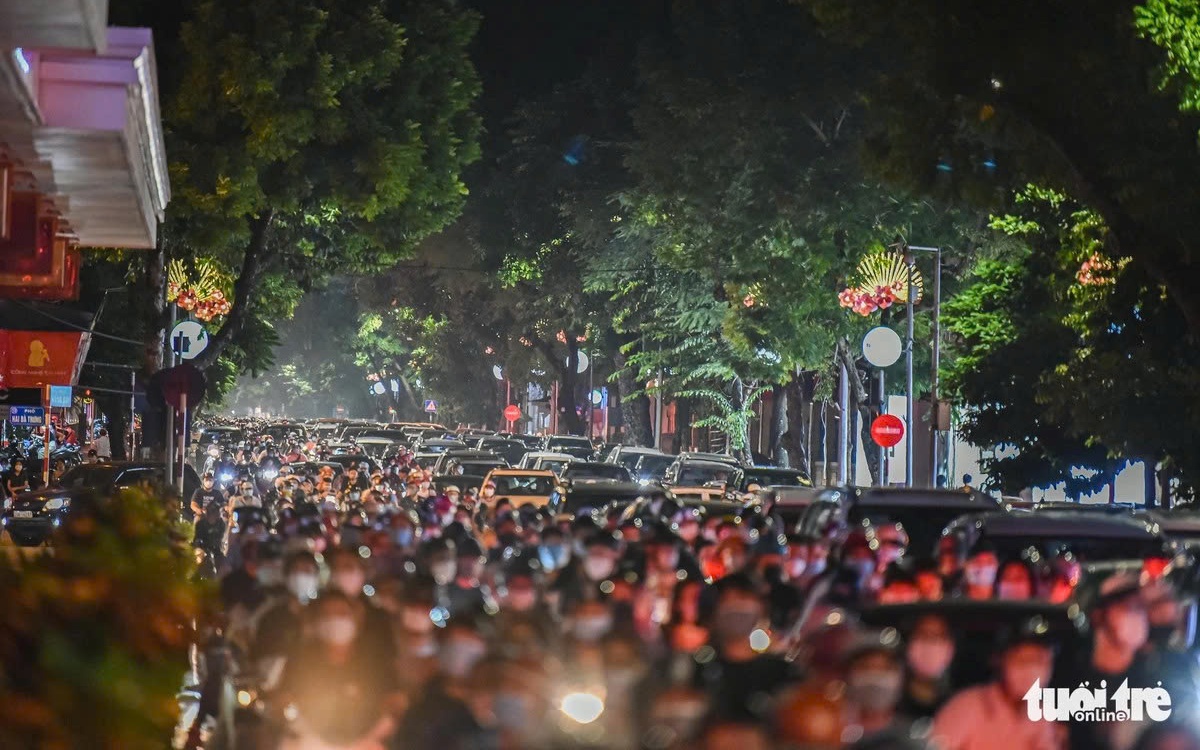
Le Thanh Hai, director of the Center for Economic Application Consulting under the Ho Chi Minh City Institute for Development Studies, explains the city’s electric vehicle transition strategy. Photo: Chau Tuan / Tuoi Tre
The plan was unveiled by Le Thanh Hai, director of the Center for Economic Application Consulting under the Ho Chi Minh City Institute for Development Studies (HIDS), during a press briefing on Thursday regarding the city’s socio-economic performance.
Hai said that Vietnam already hosts a large-scale EV battery manufacturing plant in north-central Ha Tinh Province, with billions of Vietnamese dong in investment. (VND1 billion = US$38,256)
The factory has partnered with Li-Cycle, a global leader in EV battery recycling, to develop recycling capabilities in Vietnam.
While local infrastructure is still in early development, Li-Cycle will handle battery processing using facilities in Southeast Asia or other countries if needed.
According to Hai, EV batteries contain high-value metals like nickel, cobalt, and manganese, making recycling essential.
Current recycling technologies can recover up to 95 percent of these metals.
In addition to recycling, several businesses are investing in solutions to extend battery life, such as reusing lower-performance batteries for energy storage in solar systems or converting them into solar panels.
As part of the proposal to transition 400,000 gasoline motorbikes to EVs, the city is pushing to develop the recycling center.
If the project meets technical standards, the city may offer support through green financing mechanisms, including preferential loans or environmental protection funds.
Pursuant to Vietnam’s 2020 Environmental Protection Law, battery producers are required to pay recycling fees.
However, if they invest in qualified recycling plants, they can defer this fee but must still take responsibility for collecting and processing used batteries.
Companies not directly producing batteries must pay environmental fees which the government will use to support certified recycling facilities.
“We hope Ho Chi Minh City can build a modern battery recycling center in the next 10 years to reduce pollution risks and support a greener environment,” Hai said.
He also urged the municipal Department of Science and Technology and the Department of Industry and Trade to create a detailed collection and processing plan and enforce technical standards from the start.
According to HIDS, Ho Chi Minh City has approximately 400,000 ride-hailing and delivery drivers, with each traveling an average of 80-120 kilometers per day—three to four times more than the average citizen.
This high daily mileage makes them a key target group for the city’s green transition goals.
Starting January 2026, the city plans to introduce incentives for EV adoption and halt new registrations or contracts for gasoline-powered ride-hailing motorbikes.
Drivers who join ride-hailing platforms before that date may continue operating but will be required to gradually transition to electric models.
From 2027, gasoline-powered motorbikes will be restricted during peak hours in designated low-emission zones.
By 2028, emissions inspections will be tightened, and from December 2029, gasoline-powered bikes will be completely banned from app-based ride and delivery services.




Max: 1500 characters
There are no comments yet. Be the first to comment.